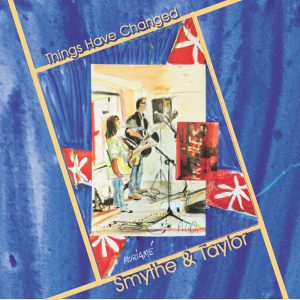Thoughts on Amendment 70
By Forrest Whitman
A generation or so ago, workers on the railroad in Salida and in the mines in Crested Butte earned the equivalent of $15 an hour. Those wages built Colorado. The workers were the backbone of the lower middle class. They worked hard and made a decent life for themselves and their families.
Unfortunately, many workers I know can seldom hope for that life. They work two or three jobs and still end up making around $25,000 a year. They often pay half what they make in rent. They’re only one bump away from bankruptcy.
We know these folks. They only buy gas $10 at a time, and their kids don’t have the grooviest shoes. They use food stamps ahead of us in the grocery line. Amendment 70 will assist folks we know, our neighbors.
This year we vote on Amendment 70. That amendment raises minimum wages from the current $8.31 to $9.30 and then raises the minimum wage by $.90 an hour until it reaches $12 an hour in 2020. Not the $15 an hour they have in California, but it’s a start.
Colorado history is full of bloody fights for a livable minimum wage. Read the names on the Ludlow massacre mine strike monument if you want a history lesson! The argument against a livable wage is still the same: Jobs will go away.
Statistics for cities and states that have raised the minimum wage show little evidence that job numbers were influenced at all. In fact, more money in the pockets of workers helps the economy thrive.
The ruling philosophy of far too many leaders in business and government hasn’t changed. It’s still “shareholder value above all.” But Amendment 70 will modestly change that. Colorado was built on $15 an hour wages. Time to move toward that goal.
[InContentAdTwo]
Proposition 106: The End of Life Options Act
By Mike Rosso
Proposition 106 is the Colorado End-of-Life Options Act, found on this year’s statewide ballot. If passed, it will authorize the medical practice of aid in dying. It will allow a terminally ill, mentally capable person who has a prognosis of six months or less to live to request, obtain and – if his or her suffering becomes unbearable – self-administer medication that brings about a peaceful death.
A petition containing 155,676 signatures was submitted to the Colorado Secretary of State to get the proposition on the ballot, the culmination of months of signature gathering by volunteers and some paid gatherers. Salida had six residents volunteer to collect signatures in Chaffee, Fremont and Gunnison counties.
Currently, other states with similar laws include: Washington, Montana, Vermont, California and Oregon, which has had the law on the books for 19 years with no proven cases of abuse or coercion. Colorado would be the sixth state to authorize aid in dying. The measure has failed in two previous legislative attempts in the past two years, which is why supporters felt the need to get it on the ballot this year.
To qualify, an individual would need to:
Be a Colorado resident aged 18 or older;
Be able to communicate an informed decision;
Have a terminal illness with a prognosis of six months or less to live;
Have that prognosis confirmed by two physicians;
Be determined mentally capable by two physicians and
Voluntarily express his or her wishes.
Patients would need to make two oral requests, at least 15 days apart, and one written request, to a physician. The written request would need to be witnessed by at least two others, and those witnesses would need to attest that the patient is mentally capable and acting voluntarily.
Even more specifically, one witness would be prohibited from being a relative, an heir or someone who works at or owns a health care facility where the individual is receiving care. The primary physician or someone who has power of attorney would also be prohibited from being a witness to the written request.
Physicians would be required to provide information to the individual about their diagnosis and prognosis, as well as alternative treatments. Physicians would also be required to refer patients to therapy if they feel the individual is not mentally capable.
Patients would be allowed to withdraw their request at any time.
Much of the opposition – in Colorado and in states where aid in dying has been considered or authorized – is from the Catholic Church. There is also a disability group in Colorado, Not Dead Yet, that opposes the measure, according to Holly Armstrong with Yes on Colorado End-of-Life Options. An independent survey by Colorado Mesa University Center for Opinion Research reported on Sept. 22, 2016, that 70 percent of Colorado voters support Prop 106.
On Nov. 9, Colorado residents will find out if that statistic is accurate.



“Physicians would also be required to refer patients to therapy if they feel the individual is not mentally capable.”
Why is the word “required” here? It says “if they feel”.” No one is assigned to monitor them. Nothing is really required, is it? In Oregon under it’s legal suicide law only about 3% of people are referred. Proposition 106 will surely lead to depressed and mentally ill people being given the suicide drugs.
Correction please:
Your source has done you a disservice. The promoters of assisted suicide have worn out their thesaurus attempting to imply that it is legal in Montana. Assisted suicide is a homicide in Montana. Our MT Supreme Court did ruled that if a doctor is charged with a homicide they might have a potential defense based on consent. The MT Supreme Court acknowledged it is a homicide in the ruling.
The Court did not address civil liabilities and they vacated the lower court’s claim that it was a constitutional right. Unlike Oregon no one in Montana has immunity from civil or criminal prosecution, death certificates are not legally falsified and investigations are not prohibited like in OR, WA and CA. Does that sound legal to you?
Perhaps the promoters are frustrated that even though they were the largest lobbying spender in Montana their Oregon model legalizing assisted suicide bills have been rejected in Montana in 2011, 2013 and 2015.
Your source has done the public a disservice. Their ordinary bait and switch campaign is demonstrated by their selling “must self-administer” then they do not provide in their legislation for an ordinary witness of the “self-administration”.
The difference is that a witness would honor individual rights and choices, without a witness it allows euthanasia. If the individual changed their mind no one would ever know. And we know that 30% do change their mind according to Oregon’s records
This omission eviscerates the flaunted safeguards putting the entire population at risk of exploitation by the medical-industrial-complex, organ traffickers and predatory heirs.
Respectfully submitted,
Bradley Williams
President
Mtaas dot org
Welcome to the Oregon experience.
Some doctors coerce patients. The following classic letter from an Oregonian is an example.
“Dear Editor,
Hello from Oregon.
When my husband was seriously ill several years ago, I collapsed in a half-exhausted heap in a chair once I got him into the doctor’s office, relieved that we were going to get badly needed help (or so I thought).
To my surprise and horror, during the exam I overheard the doctor giving my husband a sales pitch for assisted suicide. ‘Think of what it will spare your wife, we need to think of her’ he said, as a clincher.
Now, if the doctor had wanted to say ‘I don’t see any way I can help you, knowing what I know, and having the skills I have’ that would have been one thing. If he’d wanted to opine that certain treatments weren’t worth it as far as he could see, that would be one thing. But he was tempting my husband to commit suicide. And that is something different.
I was indignant that the doctor was not only trying to decide what was best for David, but also what was supposedly best for me (without even consulting me, no less).
We got a different doctor, and David lived another five years or so. But after that nightmare in the first doctor’s office, and encounters with a ‘death with dignity’ inclined nurse, I was afraid to leave my husband alone again with doctors and nurses, for fear they’d morph from care providers to enemies, with no one around to stop them.
It’s not a good thing, wondering who you can trust in a hospital or clinic. I hope you are spared this in Hawaii.
Sincerely,
Kathryn Judson, Oregon”
Doctors are human too. My brother had a stroke that left his right arm useless and his speech impaired. He asked me to contact his doctor to explain that he did not need the antidepressants that the doctor had prescribed for him because he was not depressed. The doctor’s response was “Would not you be depressed in his condition?”
We trust our doctors but we do not want to tempt them with the power to coerce their patients to cut short their life with legal assisted suicide.
Colorado Proposition 106 won with 65 percent of the vote.
Colorado Proposition 106 won with 65 percent of the vote.
Colorado Proposition 106 won with 65 percent of the vote.